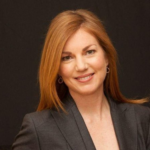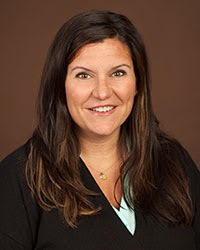The recent article reprinted directly below, “Davos 2017: Responsive Leadership in a World of Disruption,” was written by our client Julio Portalatin, CEO of Mercer LLC, as a reflection on his participation at the recent 2017 World Economic Summit in Davos, and it was so inspiring we have chosen to share it with our entire community.
As Julio outlines in his article, there have been significant disruptions in the world; economic, political, social and otherwise. These disruptions of course create a sense of caution, but also, in some arenas, a sense of optimism, unleashing some otherwise unattainable possibilities for growth. We have heard this sentiment in our discussions with CEOs, CMOs, and other C-level executives.
What is your company’s plan for responsive leadership? What challenges and opportunities do you face in this world of disruption? Are you driving transformative change or reacting to it?
Another of our clients, Barry Stowe – CEO, Jackson National Life, said recently in an Executive Leadership team meeting, “We can either be at the cause or effect of changes in our industry….and we intend to be the drivers of transformation. Anyone too attached to the past and status quo, or unwilling to drive change, the exits are clearly marked.”
As always, we welcome your comments and input.
Best,
Jeff Gundersen, CEO
Davos 2017: Responsive Leadership in a World of Disruption
Published on January 20, 2017
Julio A. Portalatin
CEO at Mercer LLC
Disruption!
Perhaps it’s an overused word, but it was certainly a global theme of 2016, and the years ahead will be marked by how well we deal with it. Wrapping up my annual visit to the World Economic Forum in Davos on behalf of Mercer and MMC, I’m struck by how appropriate WEF’s emphasis on “Responsive Leadership” is to the disruptive challenges that face our organizations.
If anything, I’d describe this year’s tone at Davos as being of two minds about the days ahead. On one hand, there was a sense of caution due to the uncertainty created by such events as Brexit and the outcome of the US election. On the other, a palpable optimism — that the world will chart a pro-growth agenda while working through the sensitive issues we face, from income inequality to immigration.
Indeed, Davos is a meeting of many minds, but it’s primarily a place to share with and learn from each other. Arriving Monday, I was thrilled to share Mercer’s vision at dinner for about 100 leaders and MMC clients – and consider this: collectively, their employee base numbers in the millions! With robotics and AI on everyone’s mind, I reflected how the leaders of major organizations worry about the intersection of technology with the human element.
Tech amazes! And yes, tech disrupts — but it’s the human factor that energizes our organizations. Are we in touch with it all? As WEF founder Klaus Schwab noted in his recent blog: “Leaders must be much better prepared for the rapid and disruptive changes of the Fourth Industrial Revolution, including those affecting labor markets.”
I’m proud to note that Mercer partners with the Forum on its Future of Jobs research, which tells us how the new technologies of the Fourth Industrial Revolution – along with demographic changes – will transform labor markets in the coming years. I look around me and realize my own granddaughters, born a few months ago, are very likely to start work in jobs that do not even exist today.
That’s a disruptive notion, for sure. But how to respond? We did on Tuesday, with the first of two Mercer breakfast briefings at Davos. We addressed a key to the future of our organizations – women, whose fortunes we’ve focused on at Davos and globally since we introduced our groundbreaking – no, our ceiling-breaking — “When Women Thrive, Businesses Thrive” research three years ago.
At this year’s Davos panel, Mercer’s Multinational Client Group and When Women Thrive Leader Pat Milligan and I welcomed Chairman of Bank of America, Anne Finucane; President of Personal Care at Unilever, Alan Jope; Executive Board Member and President of Business Network Applications at SAP, Steve Singh; and Harvard Kennedy School professor and author of “What Works,” Iris Bohnet. Highlights of the discussion are posted here.
The panel was tough-minded and insightful. Pat and I agree on the main takeaways:
- Artificial intelligence and advanced manufacturing are driving the future of work. Women and minorities will be significantly implicated in these changes.
- New technologies can minimize the impact of unconscious biases far more than employee programs do to change our mindset.
- Data and transparency play a powerful role in changing systems and behaviors to be more inclusive!
- Brands have an impact on society and, therefore, a responsibility to shift the conversation. Let’s move away from gender stereotyping in advertising!
- The difference between cultures is perhaps far greater than the difference between genders! We must celebrate that diversity and its potential for innovation.
- The gender gap deserves unswerving commitment and focus as an aspect of the Big Picture. On Wednesday, we went even bigger, with a breakfast briefing that looked at how leadership can mend another gap that deeply touches all employees: financial security – or, more accurately, financial wellness – for today’s and tomorrow’s workforce.
- Mercer Health and Wealth President Jacques Goulet and I hosted a panel discussion that included Old Mutual Emerging Markets CEO Iain Williamson and Omada CEO Sean Duffy. Highlights of the discussion are posted here.
It’s always ambitious to take on the subject of global retirement systems — they play a crucial social and economic role, yet they’ve been taken for granted. These public and private institutions have long managed and pooled the risks of individuals, guaranteeing adequate retirement outcomes. But, again, disruption: the old system has slowly been supplanted by one where each individual is responsible for their retirement and financial well-being.
At the same time, corporate pensions, public pensions, and individual savings all face underfunding, so any solution requires what I think of as a triple play, a winning trifecta of coordination among corporate, governmental, and individual stakeholders. Motivating these stakeholders to mend the gap is another big call for responsive leadership, and that’s where Mercer’s latest perspectives on public, private , and individual financial wellness will make a difference.
Of course, Davos is always about so much more than our own perspectives. As the week wore on, I had the chance to interact with scores of mind-widening thought leaders, Mercer and MMC clients.
Everything from sessions on the emerging revolution of blockchain technology to discussions with leading journalists convinced me that we are facing 2017 and hurtling forward not only with tremendous motivation to solve for the future, but also with the breadth of insight and innovation it will take to meet — and make the most of –any disruption. What are your thoughts from or about Davos? I’d enjoy keeping the discussion going right here.
Julio Portalatin – CEO, Mercer LLC
 The dog days of summer are the perfect time to refresh your brand strategy. Wait, what!? It’s true – with a little pre-Labor Day thinking space, you will set your company up with fresh energy heading into fall selling season.
The dog days of summer are the perfect time to refresh your brand strategy. Wait, what!? It’s true – with a little pre-Labor Day thinking space, you will set your company up with fresh energy heading into fall selling season. We are pleased to announce Jenny Rubio has joined our client TGSLC, based in Austin, Texas.
We are pleased to announce Jenny Rubio has joined our client TGSLC, based in Austin, Texas.